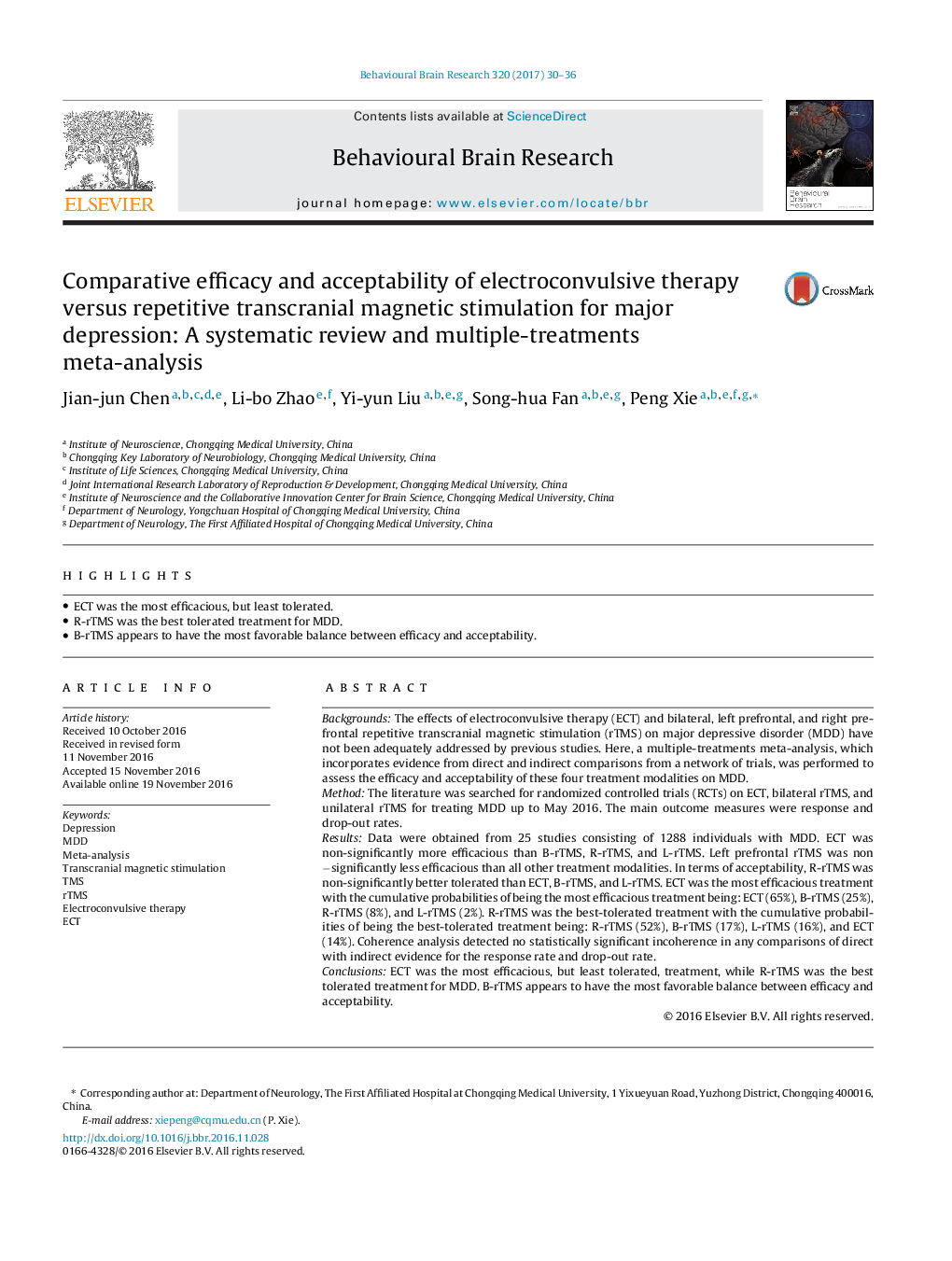| کد مقاله | کد نشریه | سال انتشار | مقاله انگلیسی | نسخه تمام متن |
|---|---|---|---|---|
| 5735646 | 1612913 | 2017 | 7 صفحه PDF | دانلود رایگان |
- ECT was the most efficacious, but least tolerated.
- R-rTMS was the best tolerated treatment for MDD.
- B-rTMS appears to have the most favorable balance between efficacy and acceptability.
BackgroundsThe effects of electroconvulsive therapy (ECT) and bilateral, left prefrontal, and right prefrontal repetitive transcranial magnetic stimulation (rTMS) on major depressive disorder (MDD) have not been adequately addressed by previous studies. Here, a multiple-treatments meta-analysis, which incorporates evidence from direct and indirect comparisons from a network of trials, was performed to assess the efficacy and acceptability of these four treatment modalities on MDD.MethodThe literature was searched for randomized controlled trials (RCTs) on ECT, bilateral rTMS, and unilateral rTMS for treating MDD up to May 2016. The main outcome measures were response and drop-out rates.ResultsData were obtained from 25 studies consisting of 1288 individuals with MDD. ECT was non-significantly more efficacious than B-rTMS, R-rTMS, and L-rTMS. Left prefrontal rTMS was non âsignificantly less efficacious than all other treatment modalities. In terms of acceptability, R-rTMS was non-significantly better tolerated than ECT, B-rTMS, and L-rTMS. ECT was the most efficacious treatment with the cumulative probabilities of being the most efficacious treatment being: ECT (65%), B-rTMS (25%), R-rTMS (8%), and L-rTMS (2%). R-rTMS was the best-tolerated treatment with the cumulative probabilities of being the best-tolerated treatment being: R-rTMS (52%), B-rTMS (17%), L-rTMS (16%), and ECT (14%). Coherence analysis detected no statistically significant incoherence in any comparisons of direct with indirect evidence for the response rate and drop-out rate.ConclusionsECT was the most efficacious, but least tolerated, treatment, while R-rTMS was the best tolerated treatment for MDD. B-rTMS appears to have the most favorable balance between efficacy and acceptability.
Journal: Behavioural Brain Research - Volume 320, 1 March 2017, Pages 30-36
